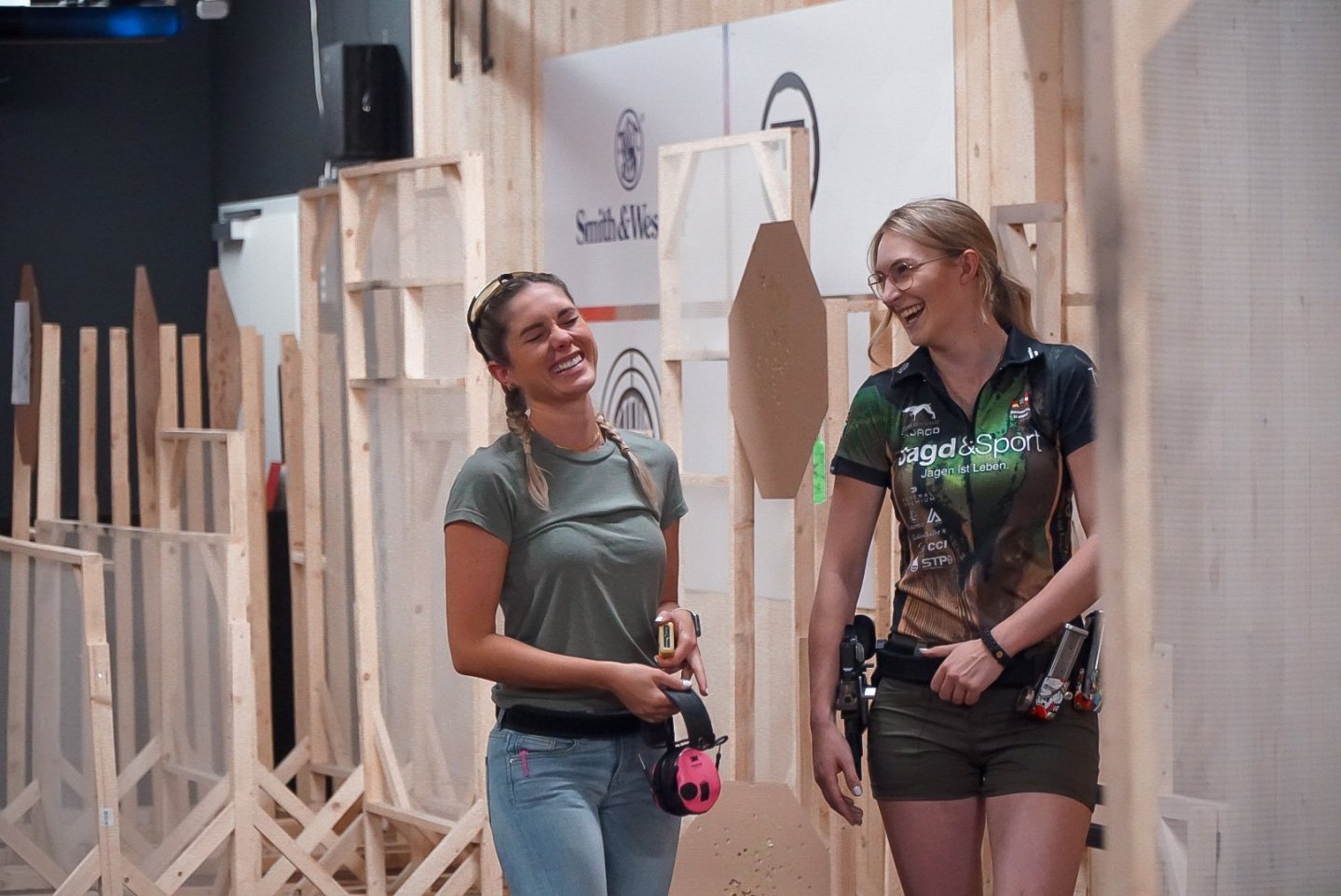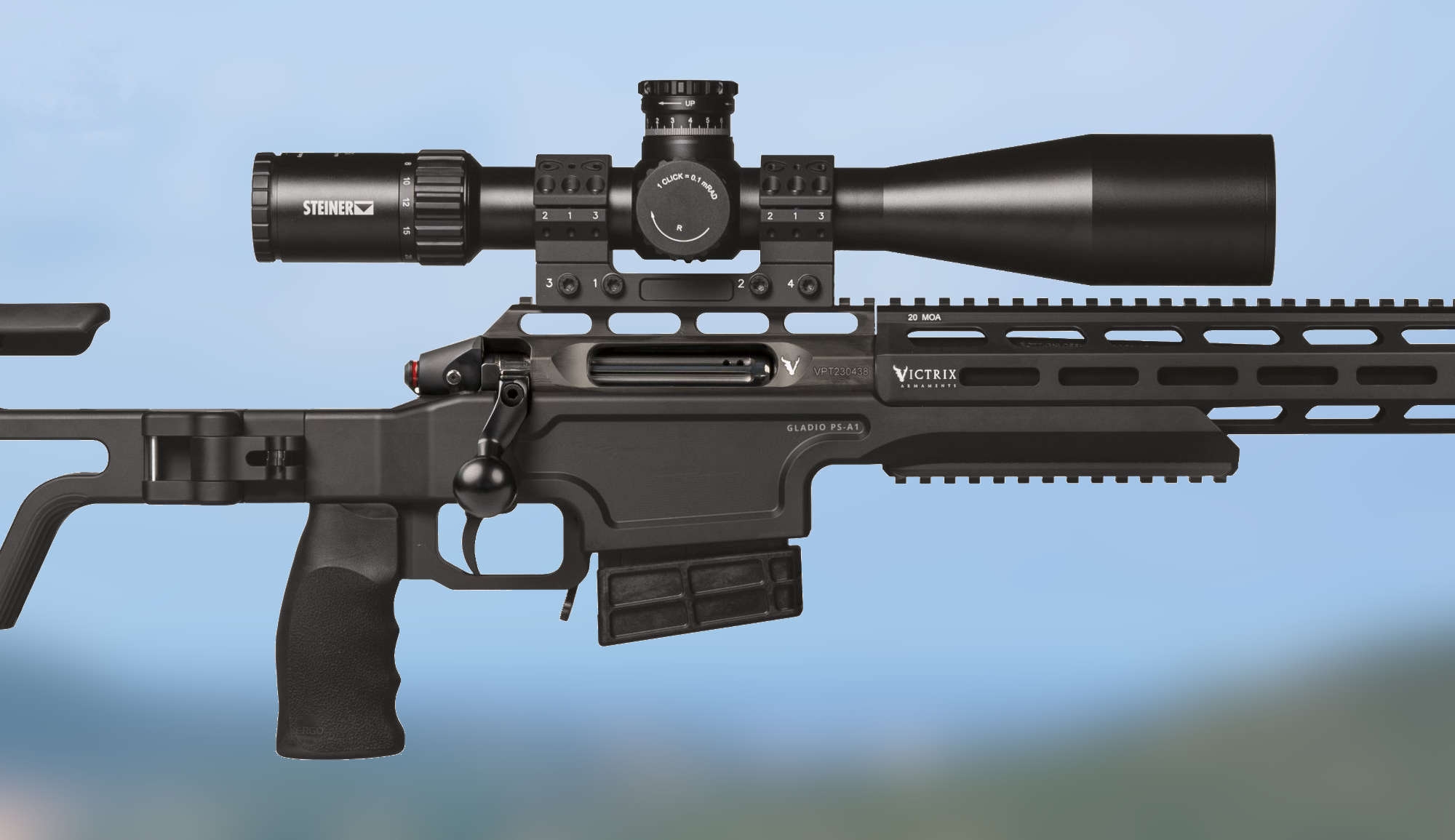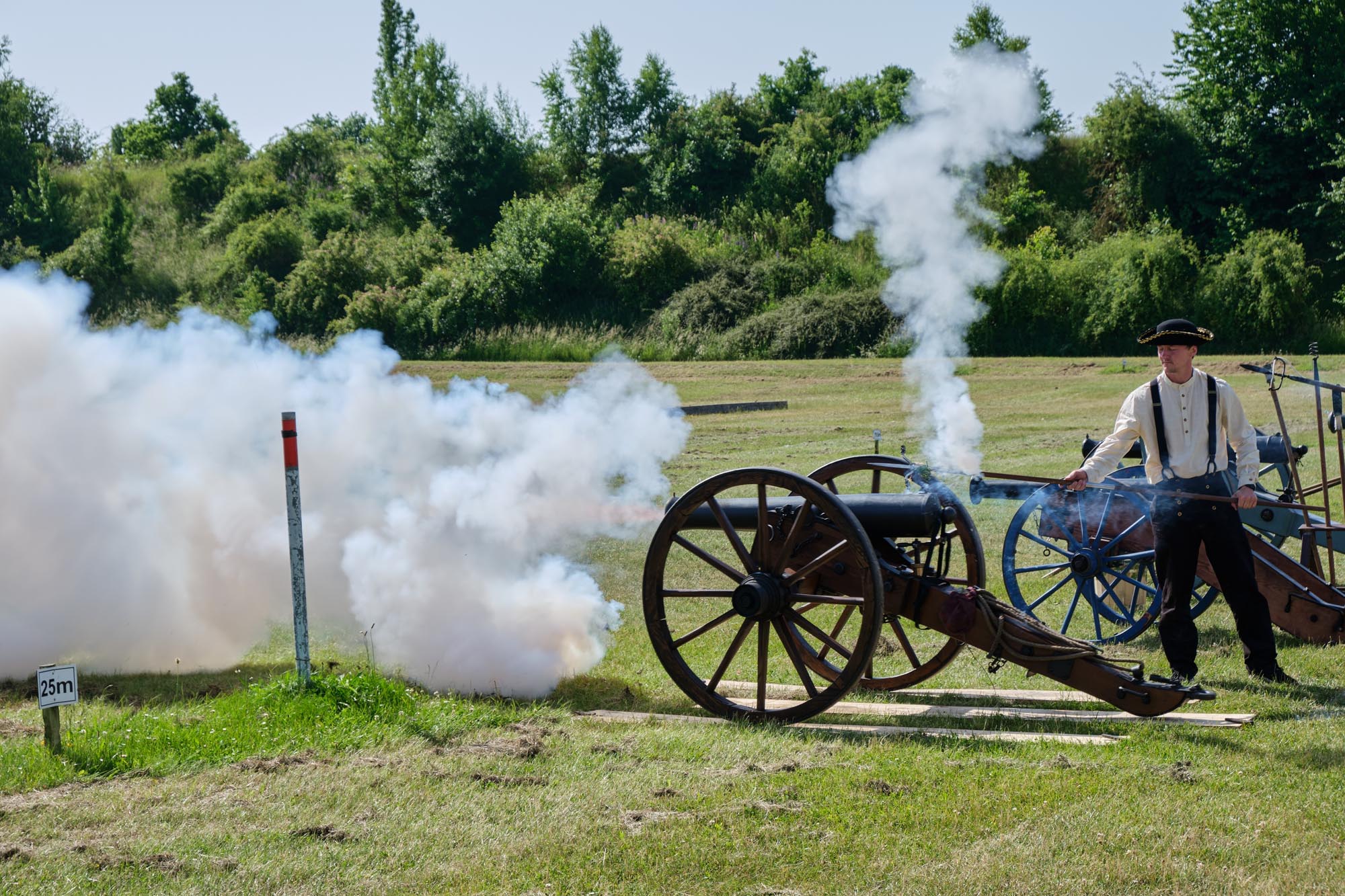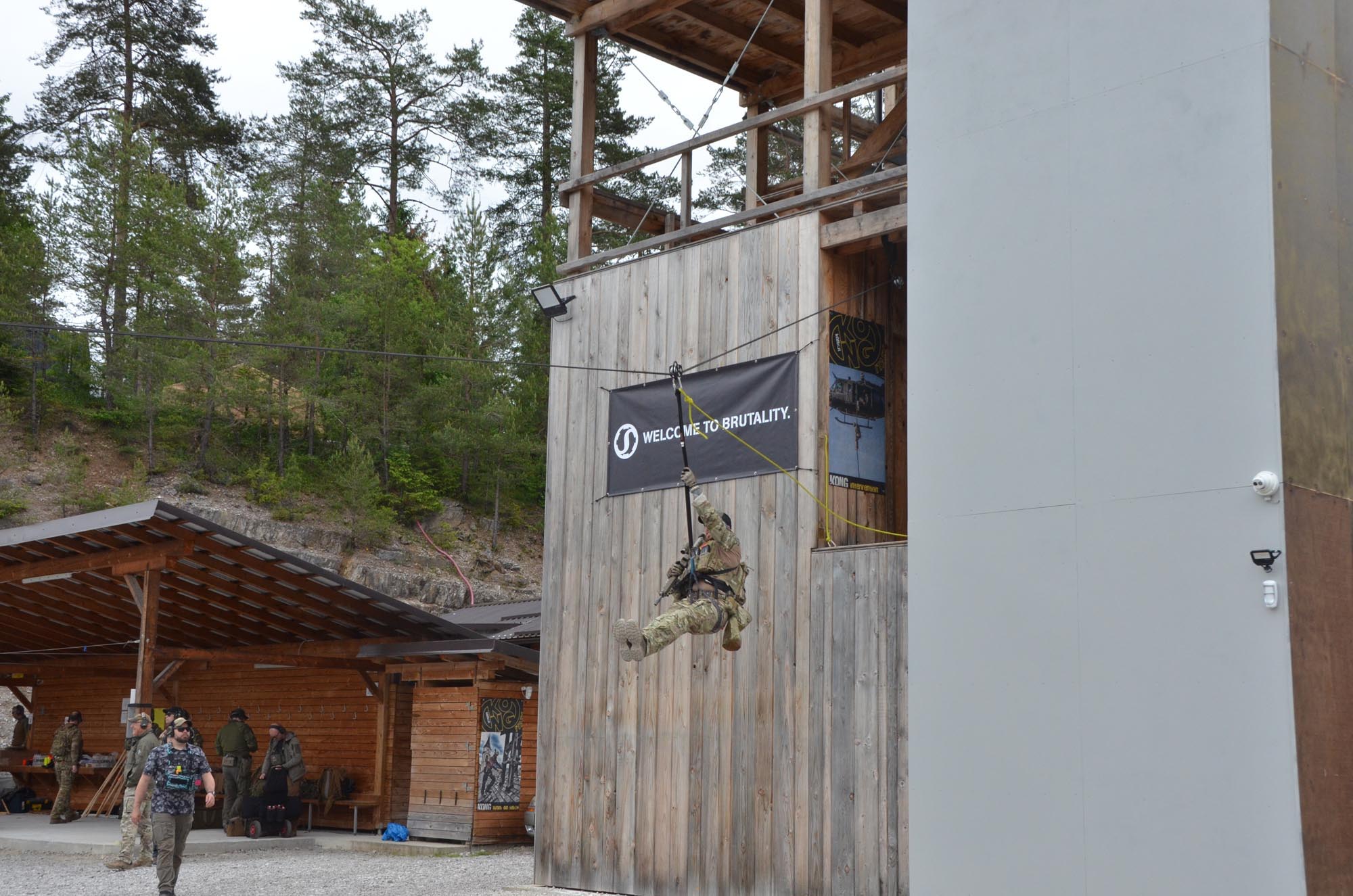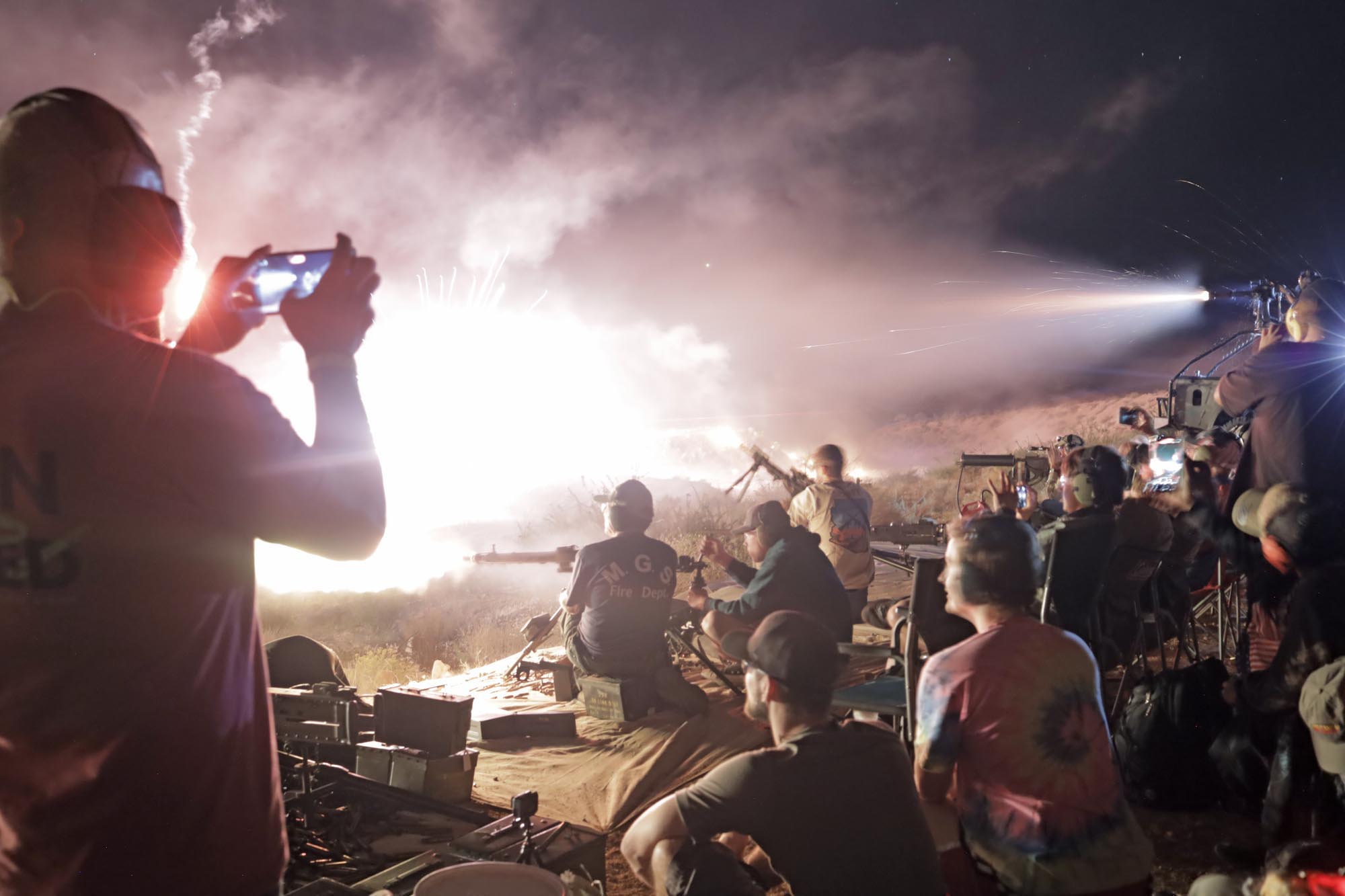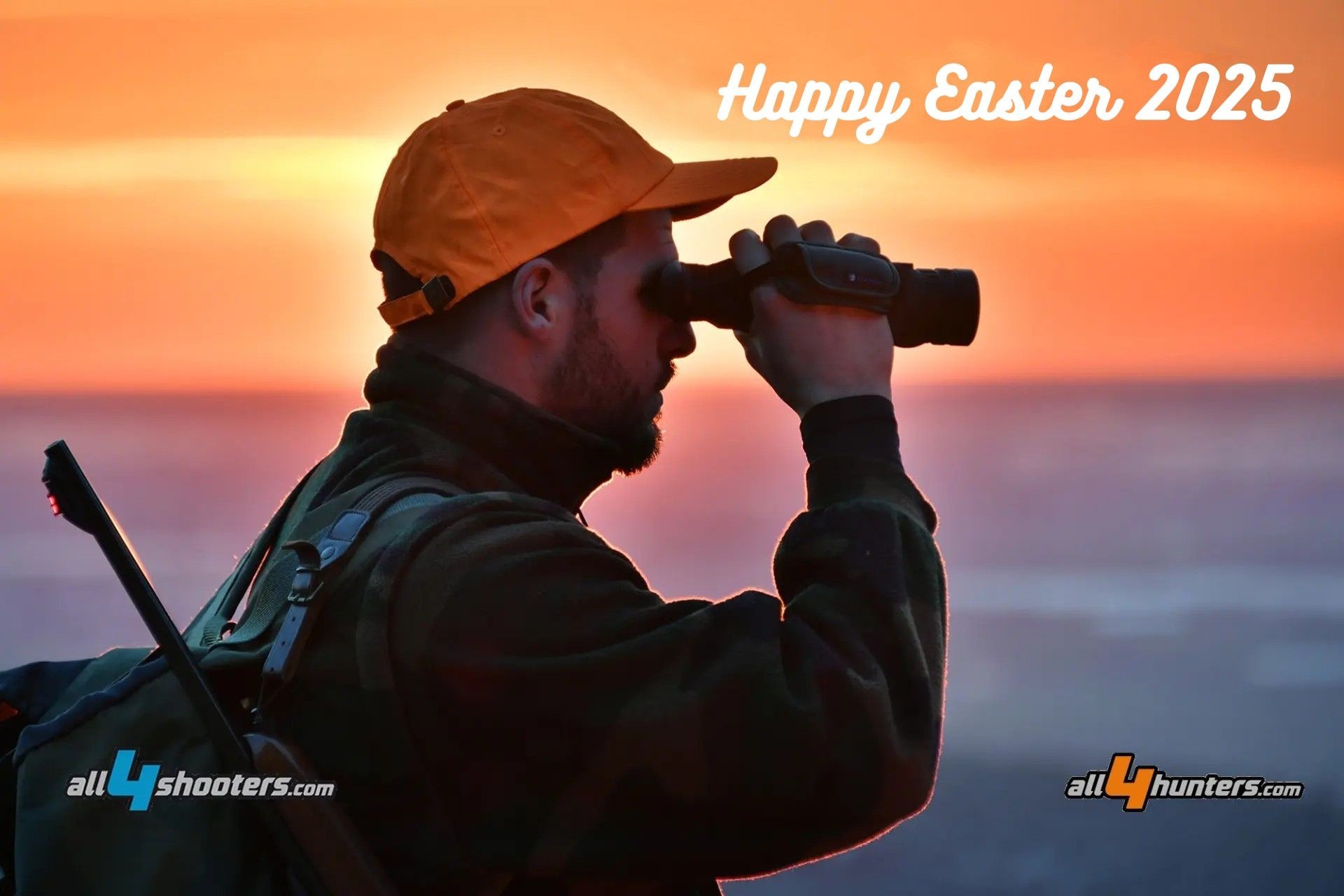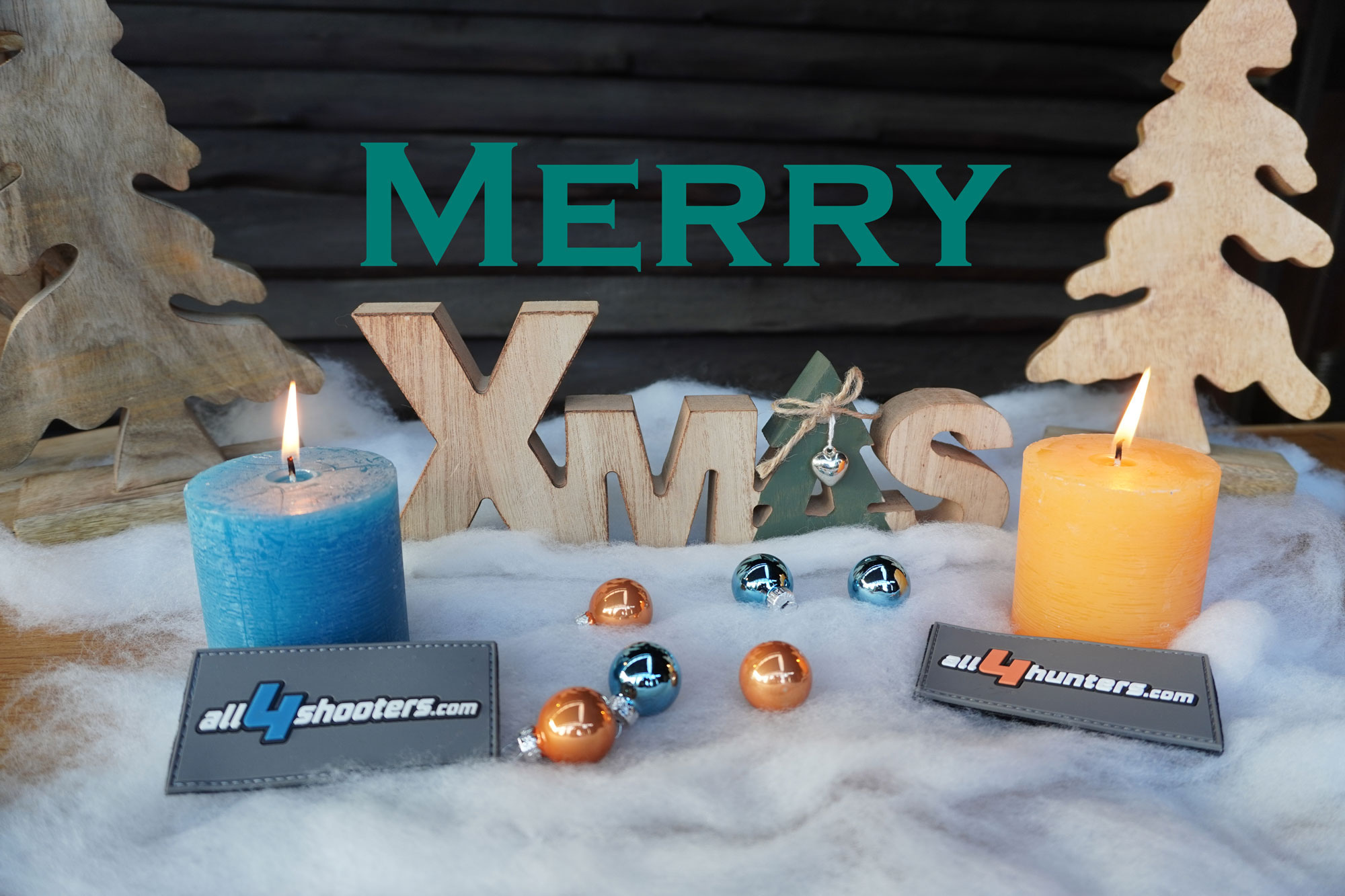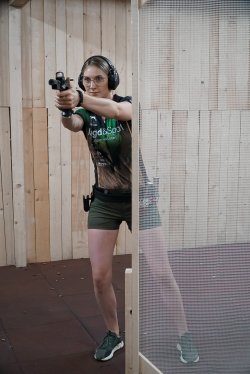
Danielle: Samantha, you and I have a lot in common but most of all we are connected by the sport of shooting, even though we are both going in different directions in the sport. Your love for guns started when you had to give up competitive archery due to injury. How is it today?
Samantha: Today I shoot IPSC competitively, in the meantime I'm even on the Austrian national team and will be competing in the World Championship in Thailand in November 2022. I love dynamic sport shooting. A competition in IPSC consists of several courses, where hits and time count. So finding the best way through the course as quickly as possible and scoring accurate hits. I prefer shooting with a pistol, but IPSC is also possible with a semi-automatic rifle or a shotgun. For me, sport shooting is my great passion.
From time to time I take part in training for defensive shooting or long range, but in the end I am always drawn back to sport shooting and IPSC competitions. I just love everything about it. Also that it is so varied. In the meantime, IPSC is also available with the PCC (Pistol Caliber Carbine), i.e. a rifle firing pistol ammunition. You've just started training in this division, but you can't really be classified in any particular discipline in the sport, can you?
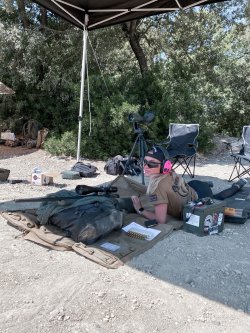
Danielle: I'm actually more of a generalist. I started out in defense shooting, and my current trainers are special forces shooting trainers and have been with me for years. In the meantime, though, I've tried a lot of things and halfway around the world. For example, I took a 3-day long range shooting course in Italy (there's already an article about that on all4shooters.com). I also took a multi-day course with clay pigeon trick shot world record holder Raniero Testa. Before the pandemic, I got to meet Taran Butler, a world champion dynamic shooter, in California. That was an incredibly inspiring experience.
Recently I had the pleasure to spend a day at the shooting range with multiple IPSC World Champion J.J. Racaza in Tennessee, USA. Currently, I am actually very attracted to PCC and I train with Martin Thaler, a multiple Austrian champion in IPSC shooting. And today I had the pleasure to share the range for the first time with a dedicated World Championship participant. So to answer your question – no, you can't really fully classify me to a classical division. However, I would describe my shooting style simply as practical. I've picked up tricks from each trainer that suit me best and are the most efficient for me. I use these to be effective, fast and accurate with all my guns.
Samantha: Perfect – the best of all worlds! In my opinion, there is no perfect technique, only perfect technique for you personally. Even the general doctrine changes every few years, in all disciplines. For example, I also learned to shoot big bore in Texas at 15 and did a lot of defensive shooting training. When I was 18, I worked as a safety instructor for young people when I visited Texas. What I like about America, especially Texas in general, is that for women, shooting sports are less of a rarity and more of a lifestyle. So there are more like-minded people, more competition, more offerings. Have you experienced that as well?
Danielle: Oh yes! Especially at the U.S. fairs, like the SHOT Show in Las Vegas, you meet a lot more women than at European fairs. But of course the men's share is always much larger, I see that on Instagram as well. There I share all my experiences since the beginning of my sporting career in shooting. The female share of my subscribers is just under 6%. Recently, I wrote a thesis in which I touched on the topic of women and their guns. In Austria, the percentage of women among gun owners is 10% - but the trend is rising (source: Statista.com). I'm particularly pleased about that! What is it like in competitions? Do you notice a big difference between men and women? Do you think there is a difference in sports?
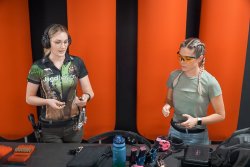
Samantha: Yes, I think there is. For example, in the scoring: everyone always shoots in the general scoring and women are also scored separately in the lady category. On the one hand, this is due to the difference in physique and thus different performances between men and women. And on the other hand there is a difference mentally. In my experience, women tend to play it safe and want to make the perfect shot. Men, on the other hand, tend to be quicker and risk the occasional miss. On the way to becoming an advanced female shooter, I have noticed that most men automatically become faster, but have to concentrate on accuracy. For me it's the other way around, I tend to stay more accurate and have to actively train to become and stay faster. Another difference is also in equipment. It used to be pink it & shrink it – but women are not just smaller and narrower, in most cases they have less muscle and a different mindset, and therefore different demands on their equipment. Two examples: 5.11 brand pants are cut so you can wear the belt at waist level, shorts are long enough so the muzzle doesn't burn your thigh. There are brands that offer unisex clothing but let's face it, even if functionality is more important than the look (hot cases in the neckline also do not look good!): you still want to feel comfortable, even visually.
Danielle:Yes that's true. Four years ago it was a little harder to get matching gloves, tactical pants, battle belts and such. I also like to have a little color among my gear. In fact, there's a lot of choice now. America is upgrading properly with equipment for women.
One example is concealed carry – today no problem even with tight-fitting clothing, because that's exactly what outfitters are now catering to. This will soon be available here as well, of course only for those who are allowed to and want to carry their guns. Another example: Walther recently launched the F-Series, a pistol designed specifically for women's hands and needs. So there's a lot going on in that regard. And that also makes it more pleasant for women who want to start with the sport!
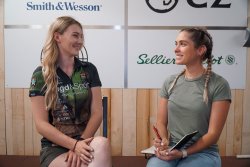
What advice would you give to women just starting out or wanting to start?
Samantha: The most important thing, in my opinion, is to have the right posture from the beginning, because that also means control over the gun. Most women tend to be smaller and less powerful than their male counterparts – so we have to use our whole body properly. The body's natural reaction to a loud bang is to flee, and many stand with a hollow back. But that way you run the risk of the gun taking on a life of its own, and the recoil quickly overwhelms you. It's best to start small and find an experienced trainer to help you with your first range visits. And you?
Danielle: Fun is my number one priority, along with safety. I have experienced many courses that were rather serious and had horror scenarios as a training background. As a young shooter, you are quickly confronted with a completely different world, even if you had originally only planned to get to know your new gun in a relaxed way under supervision. Of course, this is a deterrent. I can only recommend everyone not to be shy and to dare something new. Another tip: you don't have to be ashamed to start with rimfire pistols, on the contrary. For the right handling it is ideal (and ammo is also cheaper). Then, when everything is in place and you feel confident, you can move on to something bigger and focus on recoil control. I think this is a sure recipe for success when starting out – but this applies to all beginners, regardless of gender.
See more from Danielle Valkyrie (@daniellevalkyrie) and Samantha Wendel (@samantha_pewpew) on Instagram.


